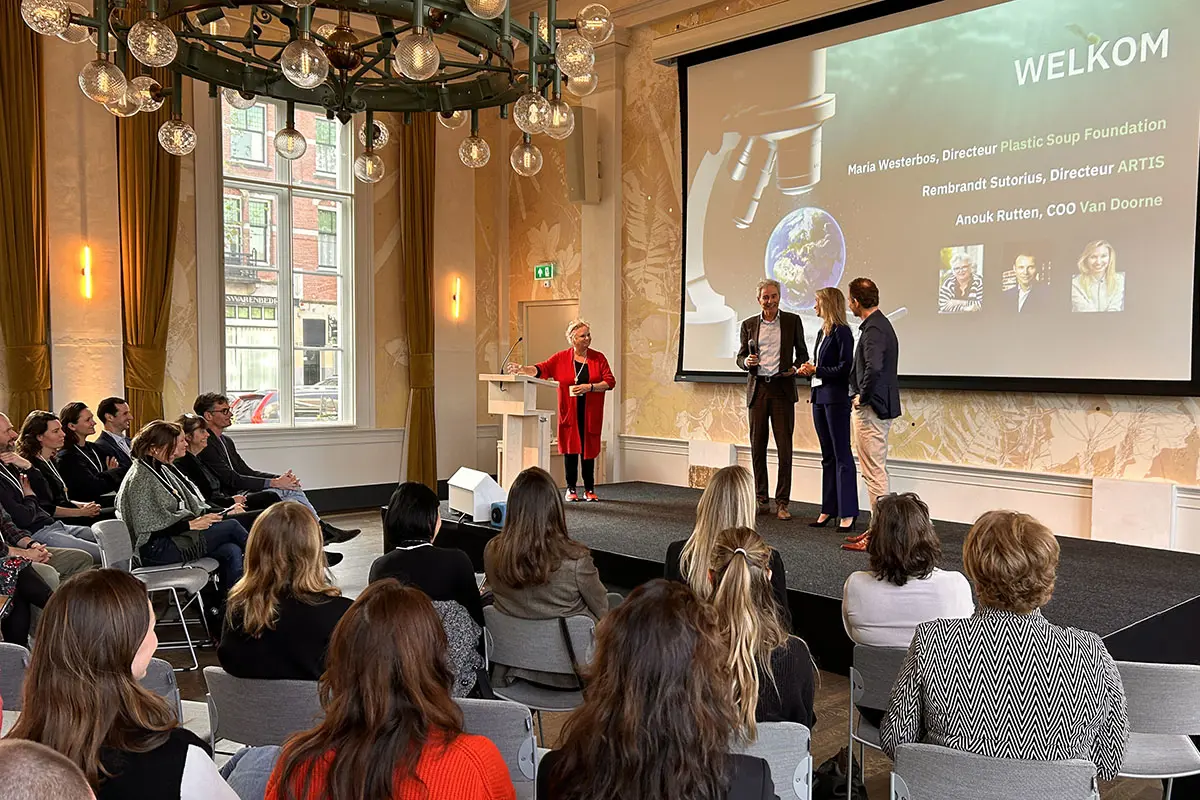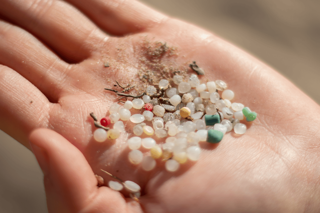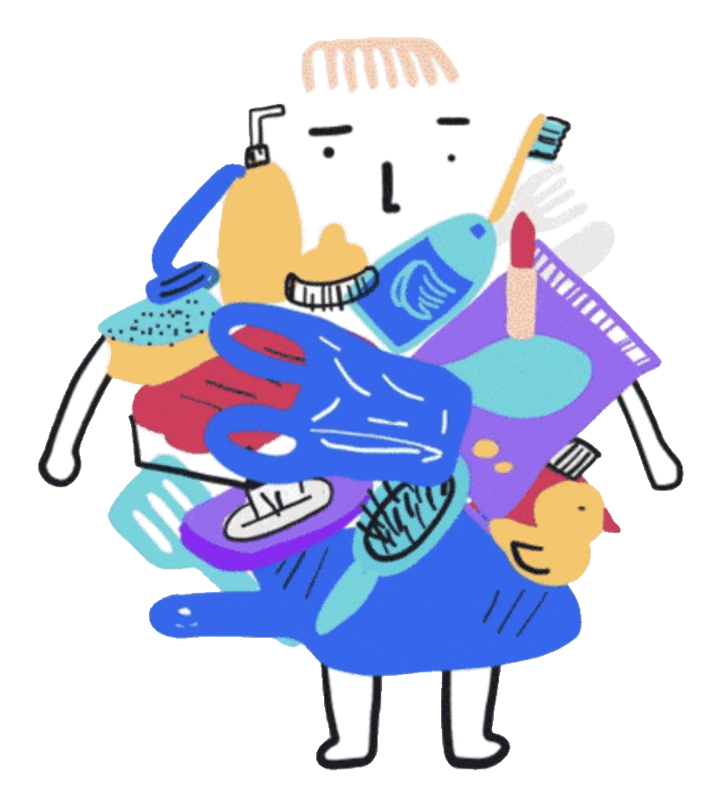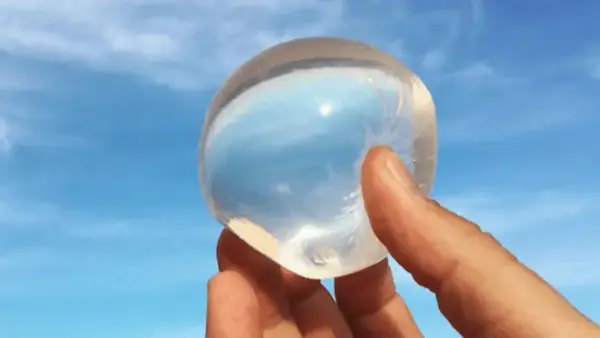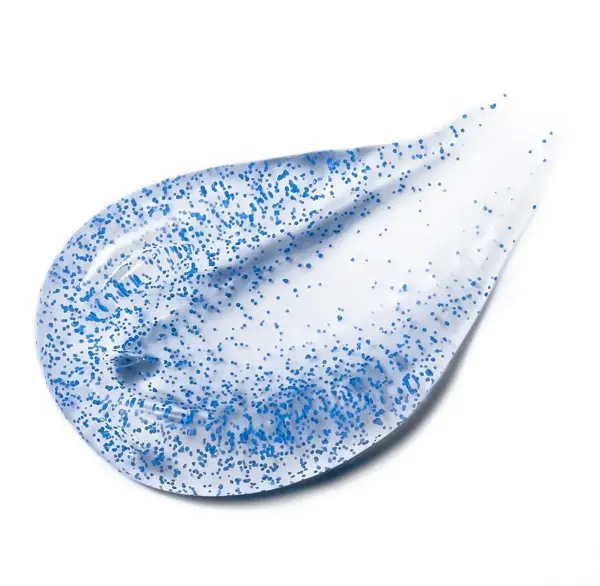More and more research shows that (micro- and nano)plastics pose a threat not only to our ecosystems but also to our health. This was one of the conclusions of the first edition of the One Planetary Health Symposium which Plastic Soup Foundation organised together with ARTIS, co-sponsored by Van Doorne lawyers, on the health impact of (micro- and nano)plastics. Scientists called for action. "We cannot wait until everything is sorted out. If we act together, we can do something right now."
More than 100 representatives from science, business and the medical and financial sectors gathered at the monumental ARTIS-Groote Museum in Amsterdam on Thursday 21 November 2024. With the symposium on the impact of microplastics on our health and innovative solutions to the plastic problem, Plastic Soup Foundation (PSF), ARTIS and Van Doorne lawyers wanted to create momentum for systemic change. ‘The symposium is meant to inform each other about new scientific insights. But mainly also to connect forerunners and work together towards a world without plastic,’ Maria Westerbos, founder and director of PSF, said in the beautifully decorated Koningszaal with French doors opening onto the ARTIS square. Rembrandt Sutorius, ARTIS director, concurs: ‘Today is really meant to create momentum to come up with solutions to the plastic problem together.’
That plastic is a threat to our health and ecosystems is evident from the presentations by speakers Jeroen Dagevos, scientist Heather Leslie and Professor Dr Barbro Melgert. Clothing in particular is a problem, says Dagevos, Head of Programs at PSF, during his introduction to the afternoon. ‘During 1 wash, 9 million microfibres are released. Fast fashion cannot do without plastic and is therefore one of the spearheads of our work in which we mainly focus on health.’
‘We are now a bit plastic on the inside,’ concludes Heather Leslie, independent scientist and consultant, during her presentation. ‘Plastic is in our blood and therefore in our whole body.’ With her research, Leslie discovered that exposure to a high dose of plastic particles can lead to chronic inflammation. The scientist also discovered that chronic inflammation is a silent killer. ‘I always thought inflammation was relatively harmless, but many chronic diseases start with chronic inflammation.’
Do clothes make us sick?
‘Everyone knows these days that plastic is floating around in the ocean. But not that it's also floating around in our air,’ Professor Dr Barbro Melgert, professor of Respiratory Immunology at the Groningen University (RUG) starts her presentation. Meanwhile, outside on the ARTIS square, a layer of wet snow is forming. Melgert discovered with her research that plastic (nylon) particles in the air inhibit the development of airways. And that this is mainly caused by chemicals added to plastic. It also turns out, ‘the smaller the particles, the deeper they penetrate the lungs.’ In addition, the concentration of plastic particles inside is much higher than outside and clothing plays a major role in the dispersion of plastic particles in the air. ‘While wearing clothes, a lot of plastic particles are released’.
Both Leslie and Melgert stress in their presentations that research on the health impact of plastics is still in its infancy. ‘For instance, we don't know what dose of plastic particles is dangerous,’ Melgert explains. ‘Yet we cannot wait until everything is figured out,’ Leslie urges the audience. ‘We can already commit to prevention, set an example with a plastic diet and work together on solutions,’ the scientists urge the audience to take action.
Ooho
‘I think you are ready for a positive story now,’ Stassen starts the programme after the coffee break as he samples the atmosphere in the room. Outside, the sun has meanwhile broken through again.
‘Just wait until you can eat our Ooho over drinks later,’ enthuses speaker Hoa Doan, manager of Impact and Sustainability at Notpla (Not plastic), to her audience. Notpla, a UK-based company that makes biodegradable packaging material from seaweed and plants, developed the Ooho in 2019 for participants of the London Marathon. This edible ‘bubble of seaweed’ can be filled with water or another liquid, making plastic bottles unnecessary. ‘With the Ooho, we replaced 200,000 plastic bottles during the London Marathon,’ the entrepreneur proudly says during her presentation. Notpla wants to contribute to system change and calculated that only 0.066% of the current amount of seaweed is needed to make all disposable plastic biodegradable.
For system change, you also need to get investors on board, speakers Mies Ligtenberg, senior advisor on sustainable investment at a.s.r. and Irene Hofmeijer partner of Earth Action, know. Together with PSF, they are working on a pilot to develop a method to measure the plastic footprint intensity of investment portfolios. ‘The method is based on the Partnership Carbon Accounting Financials (PCAF) method: a method to measure the carbon footprint intensity of investment portfolios,’ Ligtenberg explained during her presentation. The pilot is promising but ‘we need much more information from companies if we want to become the PCAF for plastic,’ Ligtenberg and Hofmeijer acknowledge. ‘It is still mainly a theoretical exercise now because almost no companies are reporting on their plastic footprint yet,’ explained Hofmeijer.
Help us lower our plastic footprint
‘Can you see us sitting there, Diederik?’, asks Stassen as the intensivist looks into the room via a video link from his consulting room at Erasmus MC. ‘I mostly see your backs,’ replies Gommers. ‘Yet I want to open the doors today: how can you help us use less plastic in healthcare,’ Gommers continues as he uses slides to show how much plastic material Erasmus MC uses in intensive care. The audience comes up with suggestions, including one from Notpla for cooperation: ‘We are having talks with medical institutions in the UK. A lot of plastic in hospitals can be replaced by products made of paper with a seaweed coating.’
‘I am now going to do something unusual,’ Westerbos concludes during the symposium's conclusion. ‘I would like to take this opportunity to establish the Dick Vethaak Pioneer Award . ‘Dick Vethaak was a good friend and the first scientist to discover plastic in our blood questioning whether plastic makes us sick. Unfortunately, Dick passed away far too early. With this award, we want to keep Prof Dr Dick Vethaak's legacy alive and encourage more research into the health impact of plastic.
The first edition of One Planetary Health tastes like more! PSF and ARTIS want to at least match this success in 2025. We will keep you posted!
